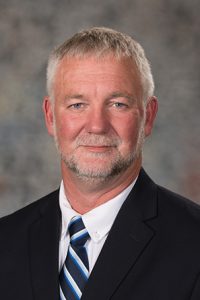Cash amusement device regulations amended, advanced
Senators gave first-round approval Feb. 12 to a bill that would impose a revenue tax and increase fees on mechanical amusement devices in Nebraska.

Such devices are cash video machines that are used for games and contests and are considered games of skill and not chance. LB685, as originally introduced last session by Kearney Sen. John Lowe, would adjust the licensing fees for such devices and move oversight and regulation of them from the state Department of Revenue to the state Racing and Gaming Commission. The original bill also would impose a 20% annual tax on the gross operating revenue for each device.
Lowe said the expansion of mechanical amusement devices across the state has made it clear that more regulation is needed to ensure that illegal games don’t infiltrate the market.
A General Affairs Committee amendment, adopted 33-1, replaced the bill. The amendment contains updated provisions of LB685 and one other measure also introduced by Lowe.
As amended, the bill would retain oversight and regulation of mechanical amusement devices with the state Department of Revenue and would impose a 5% annual tax on the net operating revenue of each cash device. Fraternal organizations would be exempt from the annual revenue tax and revenue generated from the tax would be distributed as follows:
• 40% to the Property Tax Credit Cash Fund;
• 10% to the Nebraska Tourism Commission;
• 2.5% to the state General Fund;
• 2.5% to the Compulsive Gamblers Association Fund; and
• 20% to the Charitable Gaming Operations Fund to carry out the provisions of the bill.
The remaining 25% of tax revenue would be split between the cities and counties where mechanical amusement devices are located.
Beginning Jan. 1, 2025, the amendment also would charge an annual licensing fee of $5,000 for manufacturers and distributors of mechanical amusement devices and an annual licensing fee of $100 per device, up to $5,000.
In addition, a retail establishment offering cash amusement devices would be required to generate at least 60% of their gross operating revenue from other sources. The state tax commissioner would be responsible for establishing a central server to receive accurate revenue and income reporting from cash devices across the state. Once the server is operational, each cash amusement device must be connected to it at all times.
Lowe said a number of establishments in Nebraska are operating as “de facto casinos” where the only business occurring at the location is generated through mechanical amusement devices.
“This language will allow bars, restaurants [and] gas stations … to continue to operate the games they have at their location while cracking down on the locations with no other business-generating revenue,” he said.
The amendment also includes provisions of LB836, which would prohibit co-branded alcoholic beverages from being sold immediately adjacent to any non-alcoholic food or drink portraying cartoons or “youth-oriented images.” The bill defines a co-branded alcoholic beverage as one that contains the same or similar brand name, logo or packaging as a non-alcoholic beverage.
Businesses with less than 2,500 square feet of retail space would be allowed to sell co-branded beverages adjacent to one another if they display a clearly visible sign stating that the beverage contains alcohol and can be purchased only by persons who are 21 or older.
“I believe [the amendment] strikes a good balance of regulatory willingness and safety while ensuring we are not putting a major burden on private businesses in Nebraska,” Lowe said.
Elmwood Sen. Robert Clements spoke in support of the bill and the amendment. He estimated the tax revenue generated by the proposal would result in $2.5 million in property tax credits and $1.6 million to split between cities and counties.
“[The measure is] going to be more of a statewide benefit to local entities,” Clements said, “rather than just six locations where there are casinos.”
Sen. Carol Blood of Bellevue spoke in opposition to the amendment, saying safeguards already exist to prevent underage individuals from purchasing co-branded alcohol. The branding on such alcoholic beverages does mirror their non-alcoholic counterparts, she said, but cashiers are alerted when the barcode of an alcoholic beverage is scanned and they are required to verify the customer’s age.
“I worry that this is a consumer issue and … we’re making it a morality issue,” Blood said. “Why are we involved in the marketing aspect of it?”
Speaking in support of the provision, Omaha Sen. John Cavanaugh said he understood the concerns but that the separation of hard and soft drinks at retail locations was necessary to protect consumers from confusion.
“I think we have to involve ourselves only when absolutely necessary,” Cavanaugh said. “But I do think this is a small step in … government protection of health and safety.”
Following adoption of the committee amendment, senators voted 31-0 to advance LB685 to select file.


